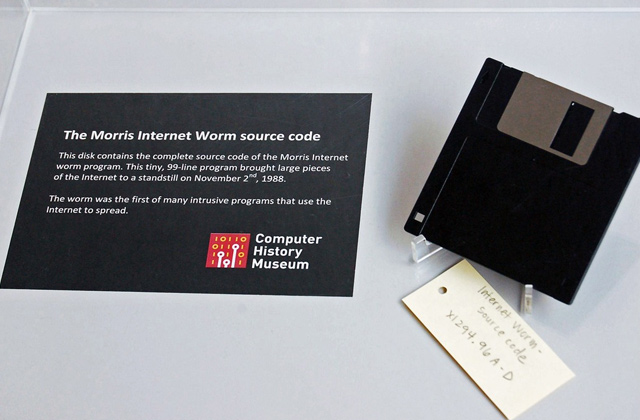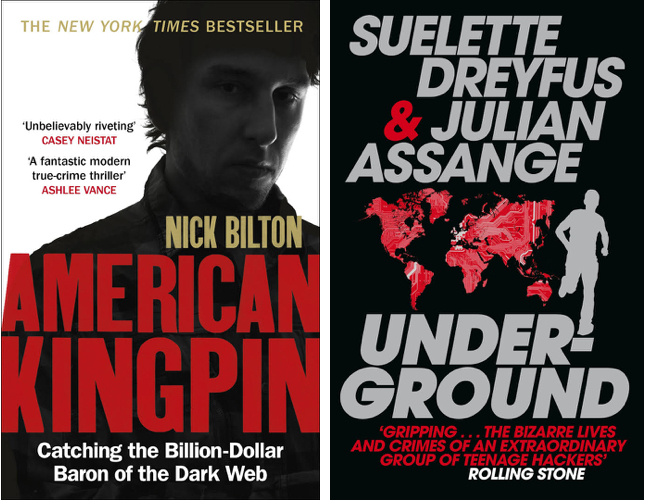Below are my notes from the book Underground by Suelette Dryfus & Julian Assange. It's an amazing book if you want to get a glimpse of the early days of the hacking culture. It also explores the culture which created folks like Julian Assange who is a powerful force in the world today.
I mostly focus on the human aspects of the book as the technical aspects are anyways outdated now. But even the human and social aspects throw a lot of light on how these early day hackers used to think.
- Friendship
When Craig Bowen (aka Thunderbird1) came to believe in 1989 that he had been duped by Gill, he retreated into a state of denial and depression. The PI community had trusted him. He entered his friendship with Gill a bright-eyed, innocent young man looking for adventure. He left the friendship betrayed and gun-shy.
Hackers are after all humans and are driven by a sense of friendship and community. Some people may imagine hackers as people who eat and breath technology, but at some level, the sense of friendship and community is important for everyone. After all, man is a social animal.
- Hackers would reveal their most prized hacks only to other hackers they trusted the most
The two hackers trusted each other; in fact Gavin was the only person to whom Force revealed the exact address of the CitiSaudi machine.
Even among hackers, there are multiple layers and inner circle and outer circles. You are admitted to these circles once you prove your worth - by hacking difficult systems.
- Recognition, important for some
Phoenix laughed at how well he had thumbed his nose at Cliffy Stoll. This article would show him up all right. It felt so good, seeing himself in print that way.
- The High
At home over the next few weeks, Electron struggled to come to terms with the fact that he would have to give up hacking forever. He still had his modem, but no computer. Even if he had a machine, he realised it was far too dangerous to even contemplate hacking again. So he took up drugs instead.
Hacking and owning systems provide a different type of high! :)
- The motivation
"In your own words, tell me what fascination you find with accessing computers overseas?"
`Well, basically, it's not for any kind of personal gain or anything,' Electron said slowly. It was a surprisingly difficult question to answer. Not because he didn't know the answer, but because it was a difficult answer to describe to someone who had never hacked a computer.
`It's just the kick of getting in to a system. I mean, once you are in, you very often get bored and even though you can still access the system, you may never call back.
- A clear head
When he was in serious hacking mode, he never smoked. A clear head was much too important. Besides, the high he got from hacking was a hundred times better than anything dope could ever do for him.
- See and Look hacking as illegal
The Scottish Law Commission issued a 1987 report proposing to make unauthorised data access illegal, but only if the hacker tried to `secure advantage, or cause damage to another person'--including reckless damage.2 Simple look-see hacking would not be a crime under the report's recommendations. However, in 1989 The Law Commission of England and Wales issued its own report proposing that simple unauthorised access should be a crime regardless of intent--a recommendation which was eventually included in the law.
Should simple see and look hacking be made illegal? What damage is it causing? Isn't it just like entering a house and seeing things. It is not nice certainly, but is it a crime?
- Weird is good
Trax seemed slightly eccentric, and possibly suffered from some sort of anxiety disorder. He refused to travel to the city, and he once made reference to seeing a psychiatrist. But Mendax usually found the most interesting people were a little unusual, and Trax was both.
Eccentric people are the most interesting. Homogeneity is a killer of creativity and genius.
- Many great discoveries are made by just tinkering
Trax made his great discovery by accident. He was using a phone sprinter, a simple computer program which automatically dialled a range of phone numbers looking for modems. If he turned the volume up on his modem when his computer dialled what seemed to be a dead or non-existent number, he sometimes heard a soft clicking noise after the disconnection message.
This is how Trax, one of the pioneers in phreaking discovered a new hack. Many great discoveries are just happy accidents by prepared minds who keep on tinkering.
- Music
Techno was musical nihilism; no message, and not much medium either. Fast, repetitive, computer-synthesised beats, completely stripped of vocals or any other evidence of humanity. He liked to go to techno-night at The Lounge, a city club, where people danced by themselves, or in small, loose groups of four or five. Everyone watched the video screen which provided an endless stream of ever-changing, colourful computer-generated geometric shapes pulsing to the beat.
Music has a potential to bring people together. A similar observation was made by Tony Hsieh, founder of Zappos, in his book Delivering Happiness. He observed that dancing to techno music with big crowds made him feel part of a bigger whole, part of the human experience.
- The Will to Power
The desire for power grew throughout Anthrax's teenage years. He ached to know everything, to see everything, to play with exotic systems in foreign countries. He needed to know the purpose of every system, what made them tick, how they fitted together. Understanding how things worked would give him control.
Hackers are driven by their immense curiosity and a desire to control systems.
- What is power?
Anthrax defines power as the potential for real world impact.
Great definition of power.
 The floppy disk with the source code of the Morris worm is now kept in the Boston Museum of Science
The floppy disk with the source code of the Morris worm is now kept in the Boston Museum of Science Books: American Kingpin and Underground
Books: American Kingpin and Underground